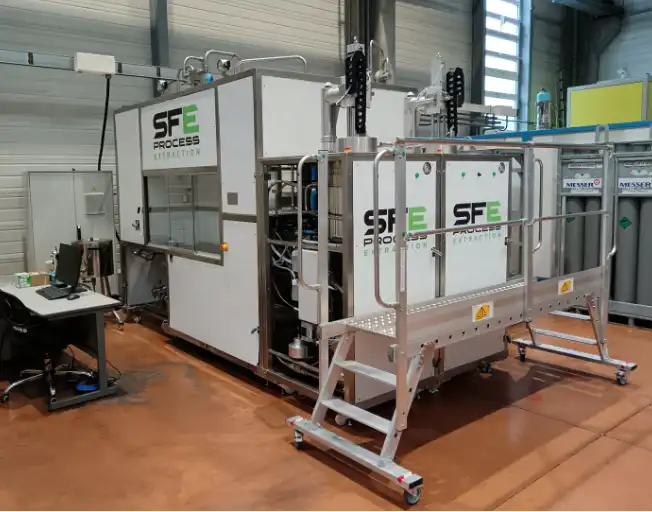Interview with Gilles Dennler, Chief Technical Officer at the French Industrial Technical Center for Plastics and Composites (IPC)
Could supercritical CO₂ purification be the breakthrough technology that delivers food-grade recycled plastics at scale? Already widely used in other industries, this low-energy, closed-loop purification process could help achieve virgin-like polymer purity—and support ambitious EU circular economy targets. We spoke with Gilles Dennler, Chief Technical Officer at IPC, about the technology’s potential, the enablers needed for European deployment by 2030, and the challenges to scaling this innovative approach.
How do extraction technologies help companies comply with EU legislation and advance the circular economy for flexible packaging?
Extraction technologies combine the assets of mechanical and chemical recycling – without many of their drawbacks. Supercritical CO₂ purification is a low-energy process requiring only heat and pressure: just 2 to 4 MWh per tonne of plastics, depending on the application.
When used in countries with low-carbon electricity (such as France), this technology has a minimal environmental footprint while significantly reducing greenhouse gas emissions. The CO₂ used in the process is captured from nearby industries and remains in a closed loop, purified after each cycle and never released into the air.
From a performance perspective, this method can return post-consumer flexible packaging to high-purity recyclate, suitable for cosmetic and even food-contact applications. More than 99.9% of contaminants are removed, making it comparable to chemical recycling but with less energy consumption and lower emissions.
What are the key enablers for maximizing your impact in Europe by 2030?
We are fortunate that Supercritical CO₂ purification is not a new concept. It is already widely used in other industries under the name supercritical CO₂ extraction (SFE). In sectors such as food and cosmetics, it is used to extract fragrances, flavours, caffeine, and oils. Additionally, an industrial plant in France already processes 4,000 tonnes of grinded cork per year using this method. Since cork is about ten times less dense than plastic, this suggests that an industrial-scale plant could process up to 40,000 tonnes of plastic annually.
Even though the industrial feasibility of this technology is well established, its application to plastics recycling is new and requires three key enablers. First, rapid and large-scale investments will be essential to deploy this technology in time to meet 2030 circular economy targets. Second, strong policy support will be needed to ensure that, under the Packaging and Packaging Waste Regulation (PPWR), post-consumer recycled (PCR) plastics sourced from European waste streams are prioritized over imported alternatives. And third, collaboration across the value chain will be crucial to integrating this technology into existing recycling infrastructures and developing new high-value applications for purified recyclates.

What are the biggest challenges to scaling this technology, and how can they be overcome?
One of the main challenges is that Supercritical CO₂ purification does not process raw plastic waste directly; it purifies mechanically recycled plastics in pellet or flake form. Scaling up depends on securing a stable supply of high-quality post-consumer recyclates. While Europe’s mechanical recycling industry is well-developed, consistency in feedstock remains an important factor.
Deployment at scale is another challenge, but we believe that the versatility of the purification units will help address this issue. They can be installed directly at plastic conversion facilities to purify a stable PCR feedstock at a rate of 500 kg per hour to support an extrusion line – or, alternatively, larger independent plants could be developed with a capacity of 20,000 to 50,000 tonnes per year.
To help build a strong foundation for the future, we have established a strategic partnership with SFE Process (France), a leading European manufacturer of supercritical CO₂ extraction machines. Together, we are working on a pilot line capable of processing 1,000 tonnes per year by 2027. We also plan to establish a 20,000-tonne-per-year demonstration plant by 2029, which we believe will serve as a scalable model for full industrial deployment.
By leveraging existing infrastructure and strategic partnerships, we are hopeful we can scale this technology efficiently and make high-purity, food-grade recycled plastics a reality.

Gilles Dennler,
Chief Technical Officer, IPC
